3 Things Every Effective Face Serum Needs, According to Dermatologists
It's true. There are so many skincare products—moisturizers, face oils, retinoids, eye creams, face masks—that it can get pretty overwhelming at times. You probably know you always need the basics like a moisturizer, a cleanser, and sunscreen, but what about the rest? Are you wasting your money on products you don't really need?
There are a lot of differing opinions on this, and I think a lot of it depends on your skin's needs. For me, though, serums are nonnegotiable. I love that they're lightweight, absorb quickly, and work fast. Personally, I like to use ones that have brightening and hydrating effects, although you can find one for basically every skin type and concern. Keep scrolling to learn everything you need to know about serums, including how they work and what to look for.
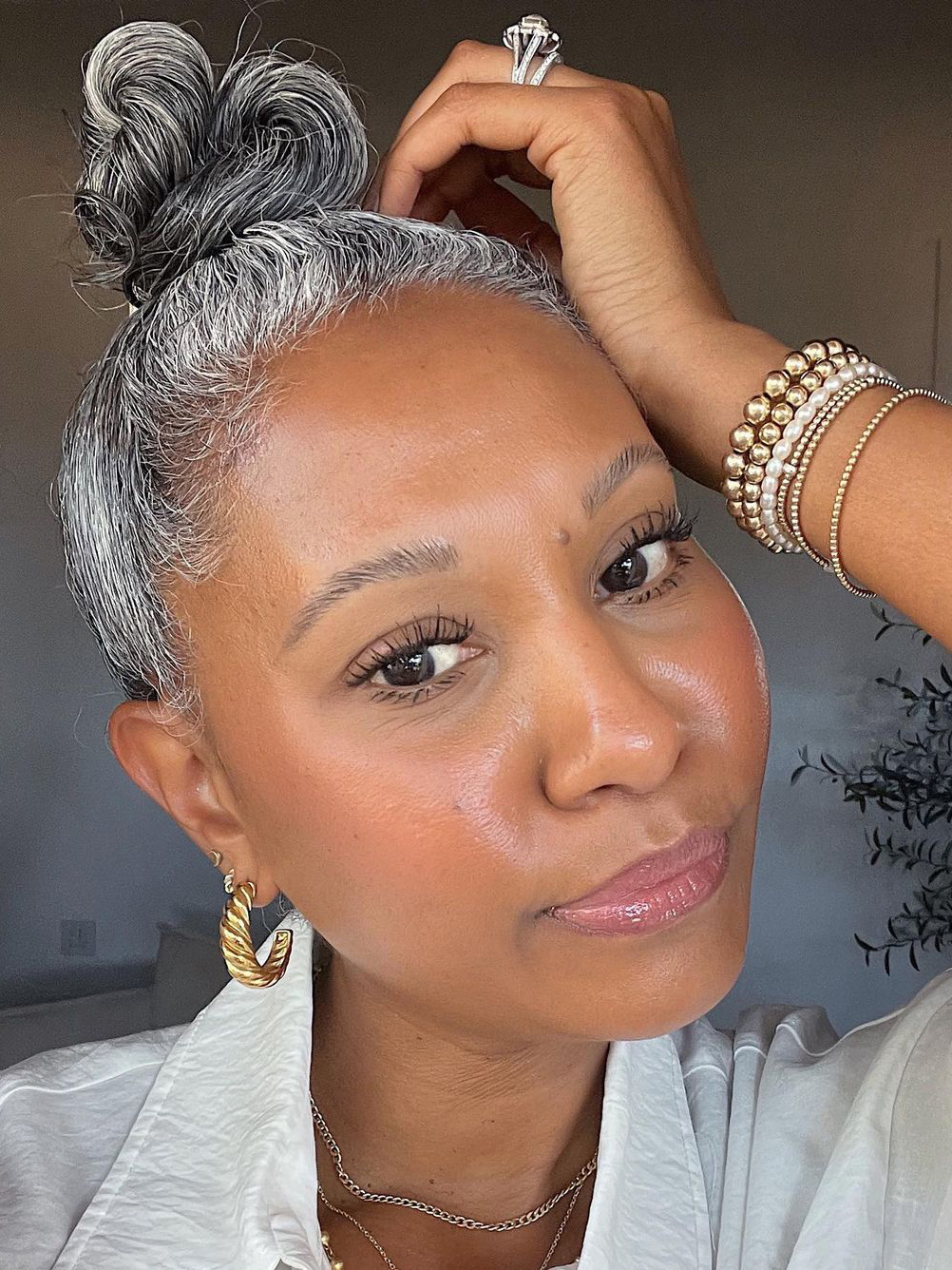
What Is a Serum?
"A face serum is a highly concentrated topical therapy that is on the lighter end of the thickness spectrum," explains Corey L. Hartman, MD, FAAD, founder of Skin Wellness Dermatology. "Serums can be water, gel, or oil-based and include one or several potent active ingredients that are targeted to a particular skincare concern. They generally come in a liquid to gel-like texture and consist of smaller molecules that are able to penetrate the skin and go to work at a deeper level where they can create change."
What Does a Serum Do?
Not every serum is created equally, of course. Joyce Imahiyerobo-Ip, MD, FAAD, founder and CEO of Vibrant Dermatology and Skin Bar MD, says, "There are many different types of face serums, all geared toward addressing different skin concerns. Most commonly, you'll find antioxidant serums, anti-aging serums, and serums that improve hyperpigmentation."
Some serums can also provide hydration, but they differ from a moisturizer. While a moisturizer might be thick and creamy, a serum will be lighter and thinner. "Serums are intended to penetrate deeply into the skin to deliver targeted active ingredients, whereas moisturizers help to fortify the surface of the skin, bind skin cells together more effectively, and work at the surface of the skin to increase hydration."
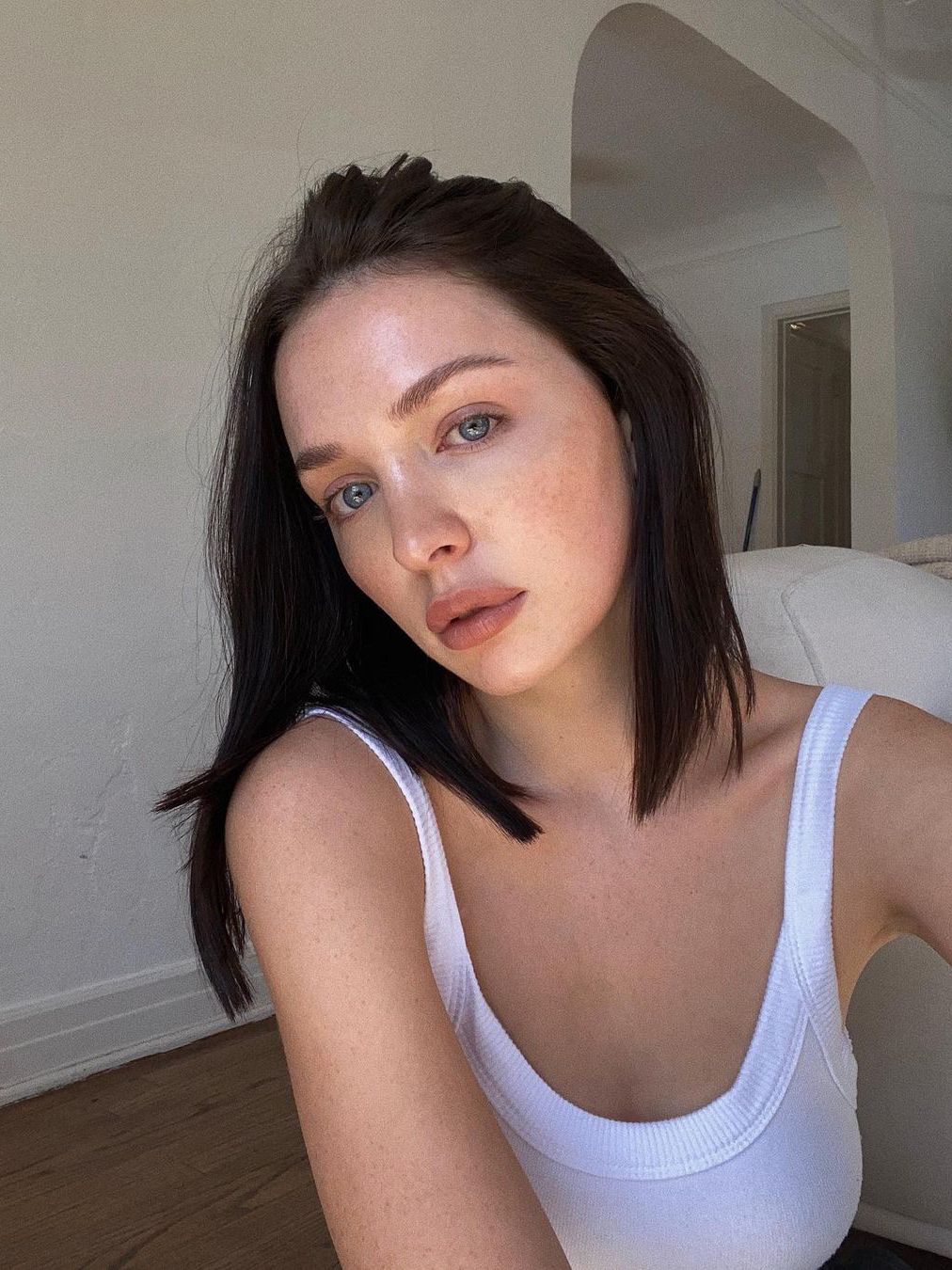
How to Choose a Face Serum
Since there are so many different variations of serums out there, you might wonder how to shop for one. "Choose your face serum based on the concern you wish to address," recommends Imahiyerobo-Ip. "Serums are generally pricier than the average over-the-counter skincare cream. How do you know if the serum is worth purchasing? Look at the ingredient list. The active ingredient should be at the top of the ingredient list. If it's not, then you'll know that the serum isn't going to deliver the results you desire."
When it comes to choosing an effective face serum, Hartman says to keep three things in mind:
1. Active Ingredients: "Choose active ingredients that target your skin concerns and dermatologic conditions," Hartman says. That might mean vitamin C to brighten and even skin tone or hyaluronic acid for hydration.
2. Your Skin Type: For oily skin, consider a lighter and more aqueous serum. For dry skin, try an oil serum. "Those with sensitive skin must avoid serums that contain too many acids," Imahiyerobo-Ip says. "Acids such as glycolic acid, salicylic acid, citric acid, or retinoic acid all exfoliate the skin. If your serum contains acids and you have sensitive skin, you may experience skin irritation and redness."
3. Consistency of the Serum: Again, go with a lighter formula if you have oily skin and an oil-based formula for drier skin.
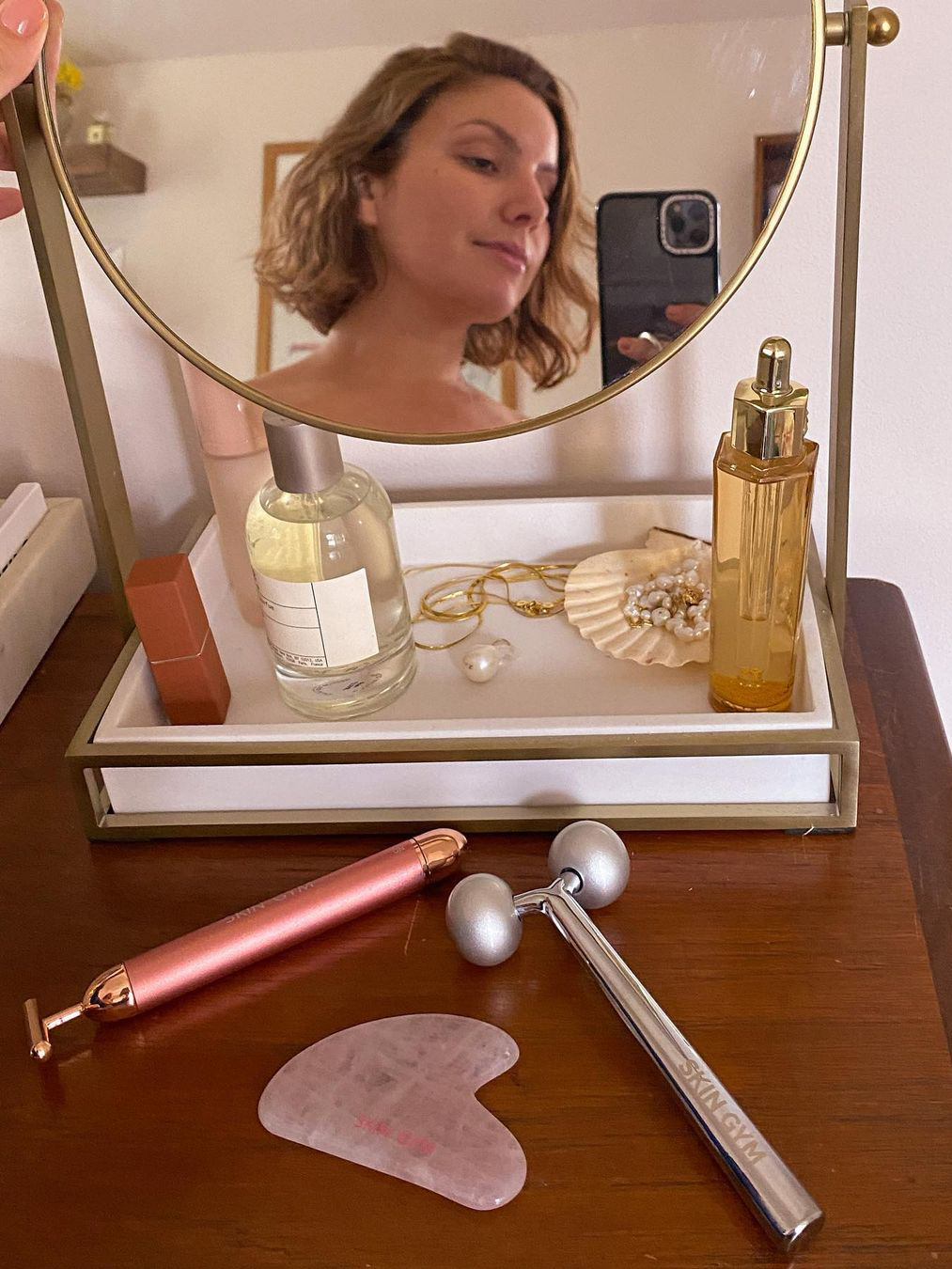
How to Use a Serum
When it comes to applying serum, you'll want to put it on right after you cleanse the skin. "In general, skincare products are layered from thinnest to thickest, with the thinnest products being applied to the skin first," Hartman explains. "If you think about the intended goals, it makes sense. Serums are intended to deliver active ingredients deep into the skin, and the moisturizer forms a seal to make the serums more efficacious."
And as for if you can ditch your moisturizer for a serum, both derms say you still might want to keep both around because each has a different role to play in your overall skincare routine. "The purpose of a moisturizer is to protect, hydrate, and lubricate the skin," Imahiyerobo-Ip explains. "Serums are focused on transforming the skin by providing potent, active ingredients. While there are some serums that are meant to enhance the skin's moisture barrier, such as hyaluronic acid, I generally consider these as adjuncts to a moisturizer."
Take a look at some serum options below, categorized by skin type.
Overall Best: SkinCeuticals CE Ferulic
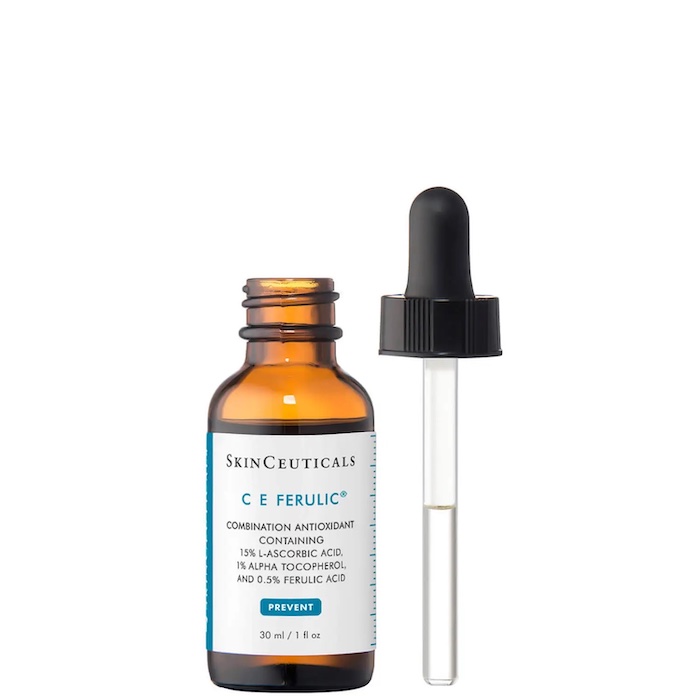
Yes, this serum is pricey, but it provides elite antioxidant protection with ferulic acid and pure vitamins C and E. It keeps aging free radicals away and brightens and hydrates the skin. It's a classic for a reason.
Promising review: "I've been using this for many years. It has done wonders for fine lines, wrinkles, and free-radical damage (freckles, spots, etc). I make sure to have a second bottle on hand. This is my number one staple for sure." — Dermstore customer
For Normal and Combination Skin:
HydroPeptide Hydrostem Stem Cell Antioxidant Serum
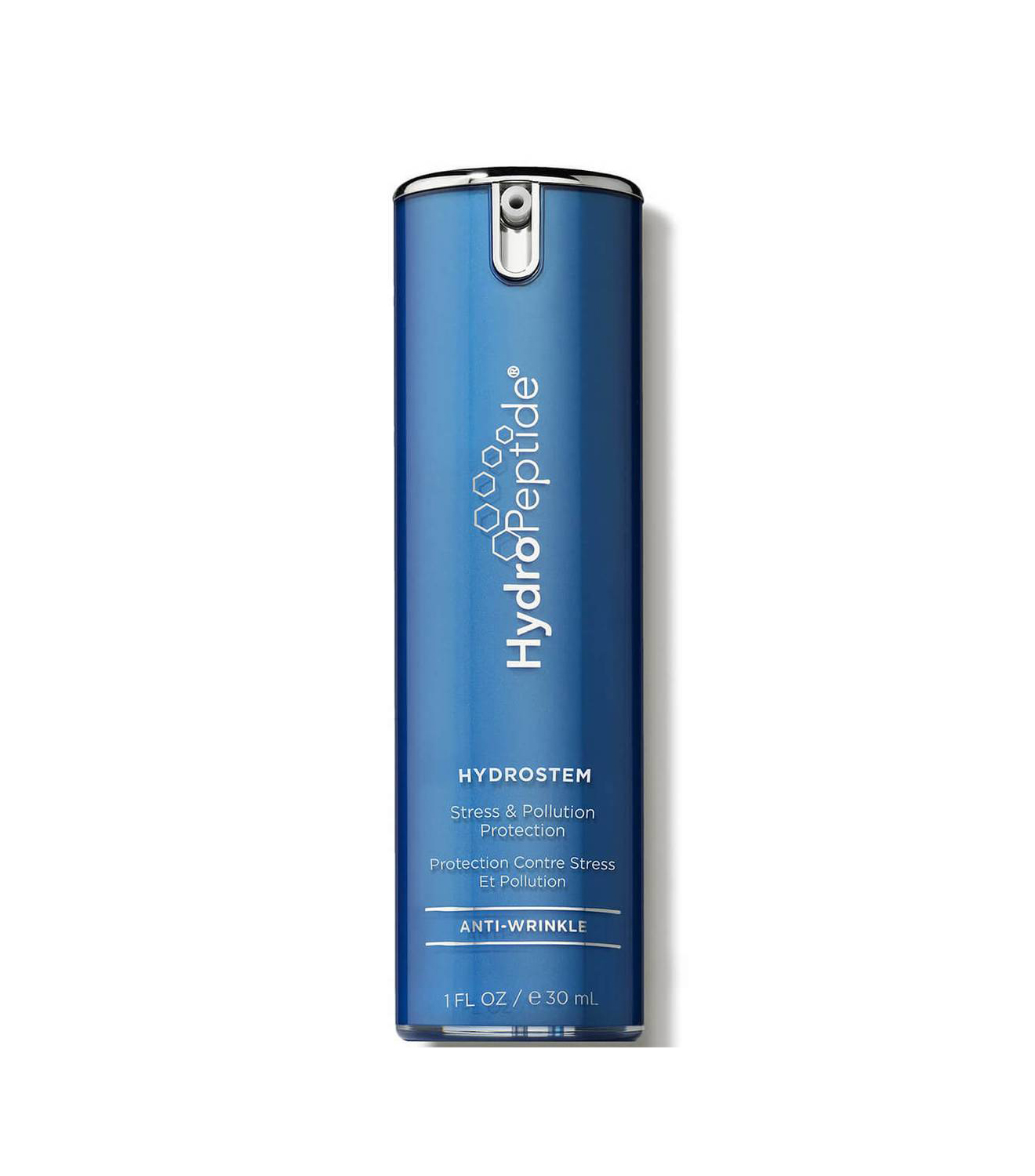
This one is Imahiyerobo-Ip's favorite antioxidant serum. "It contains a blend of botanical stem cells to protect and revive the complexion. It's formulated with peptides, plant extracts, and antioxidant-rich stem cells which help to nourish and protect your skin," she says.
Promising review: "Hydrostem has done amazing things to my skin. I wish I could bathe in it. I love it. A little bit expensive, but my skin loves the investment." — HydroPeptide customer
TruSkin Vitamin C Serum
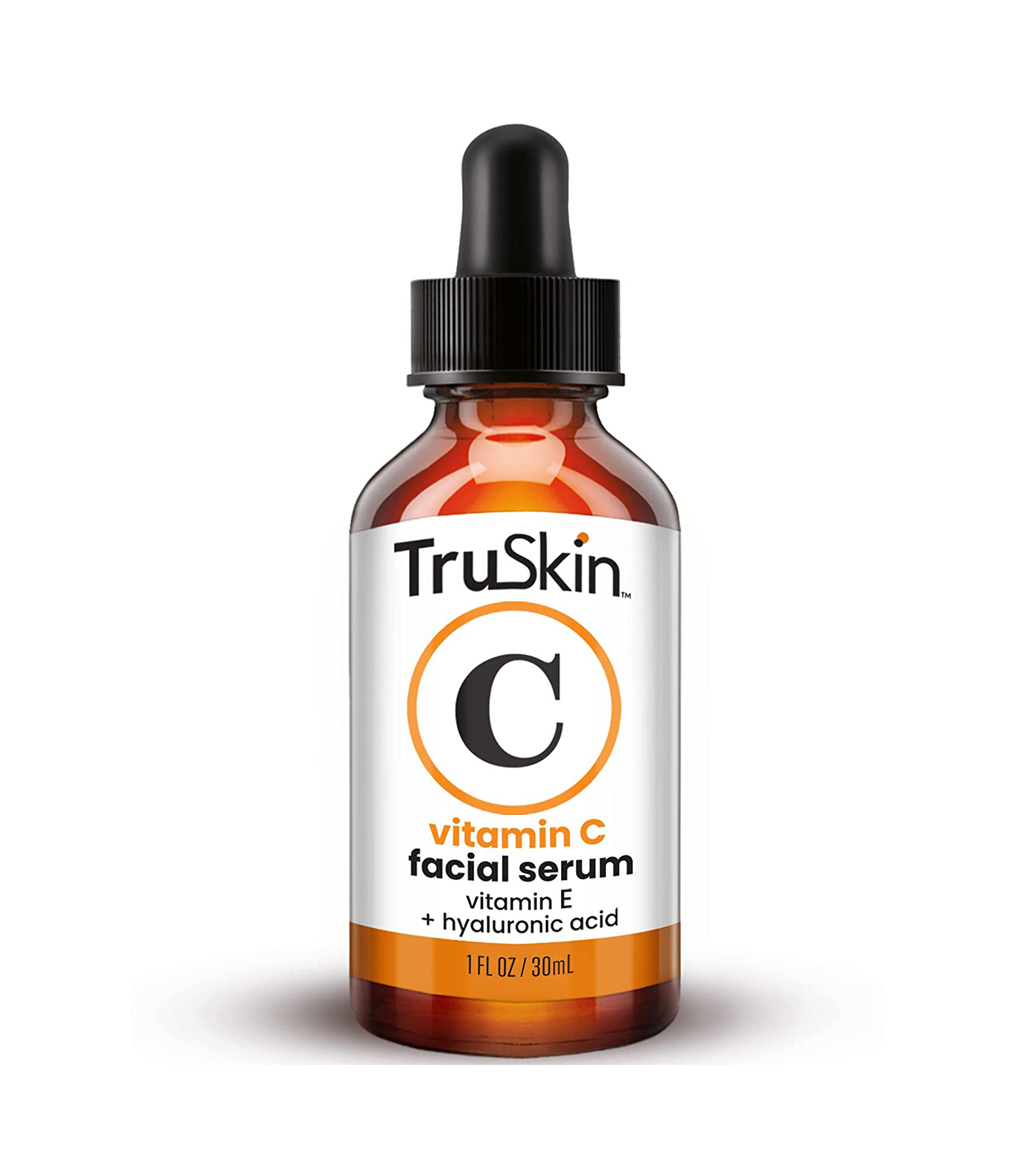
TruSkin's vitamin C serum is a big hit on Amazon, with over 85,000 ratings and 4.5 out of 5 stars. In addition to vitamin C, it contains hyaluronic acid, vitamin E, witch hazel, and jojoba oil to reduce the appearance of wrinkles and dark spots. Plus, it will leave your skin just glowing.
Promising review: "My skin looks brighter, fresher, and noticeably more even-toned. Any signs of dullness or fatigue are replaced by a luminous, healthy-looking complexion." — Amazon customer
SheaMoisture Brighter Days Ahead Serum
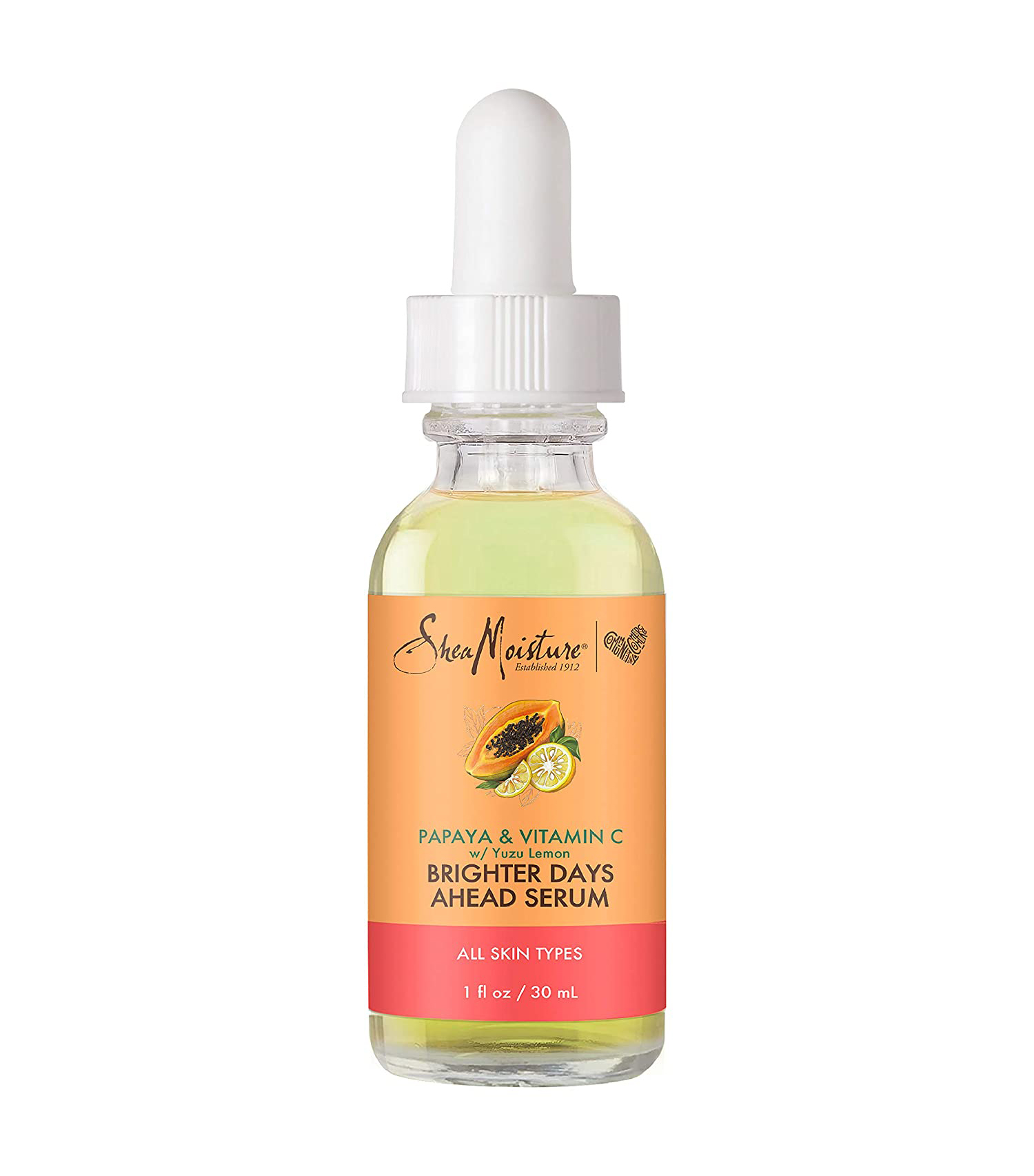
"This serum contains a potent blend of papaya, vitamin C, and yuzu lemon and helps to brighten and hydrate skin," says Imahiyerobo-Ip. "Unlike many vitamin C serums, it is not too irritating and can be used on most skin types."
Promising review: "As someone who has combination skin and works in a swimming pool, I absolutely love this product. It's definitely an oil-based serum, but I love it." — Amazon customer
Tatcha The Dewy Serum Resurfacing and Plumping Treatment
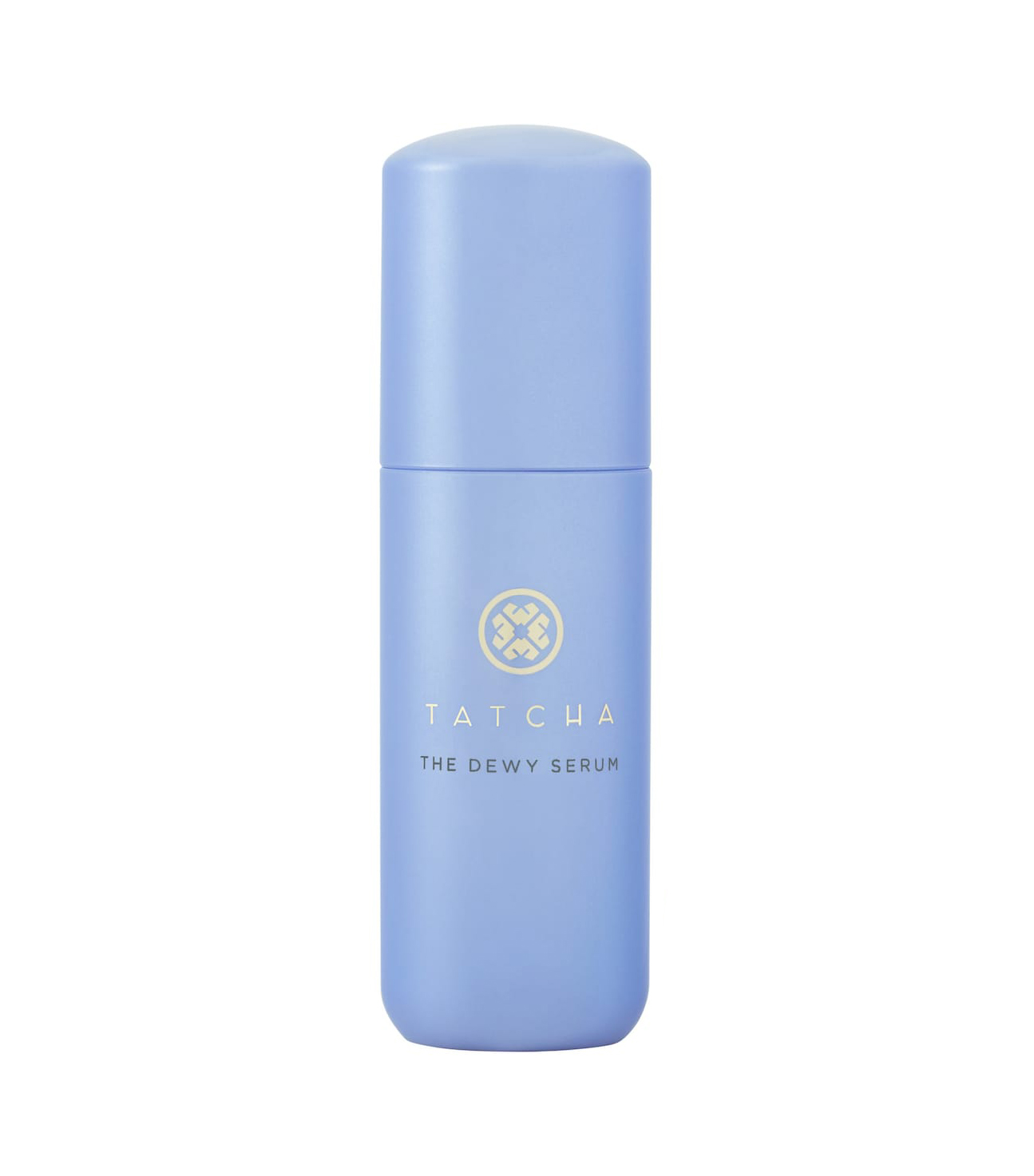
This three-in-one serum nearly does it all. It smooths fine lines and texture, plumps the skin, and locks in moisture. Ingredients include lactic acid, hyaluronic acid, and squalane.
Promising review: "I started using the Tatcha Dewy Serum six weeks ago, and my results are amazing. With sensitive combination skin, I had no breakouts. My skin is plump and filled with just the amount of moisture. As a 50+ woman, I recommend this product." — Sephora customer
Glossier Super Bounce
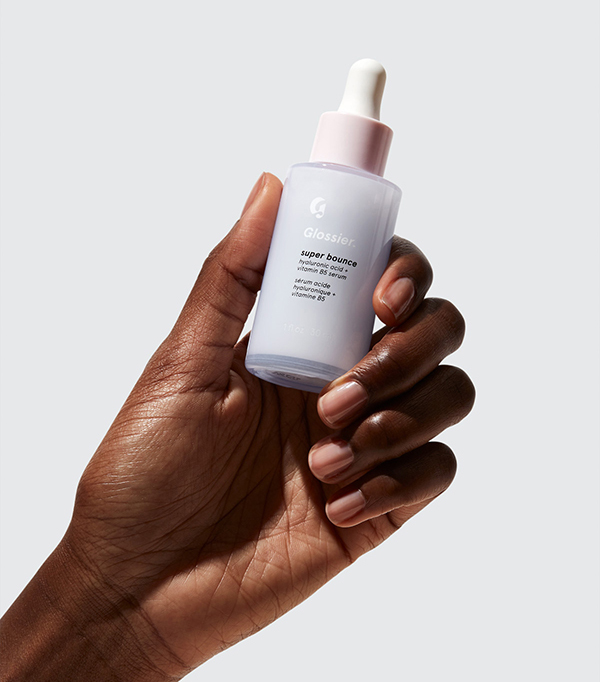
Glossier's Super Bounce serum contains 2% hyaluronic acid and pro-vitamin B5 to hydrate the skin fast. It's great for all skin types, fast-absorbing, and silky-smooth (aka not sticky).
Promising review: " I recently hopped on the serums and lotions train, and [I] love the way this product makes my skin look and feel. Instant compliments!" — Glossier customer
For Oily, Acne-Prone Skin:
iS Clinical Active Serum
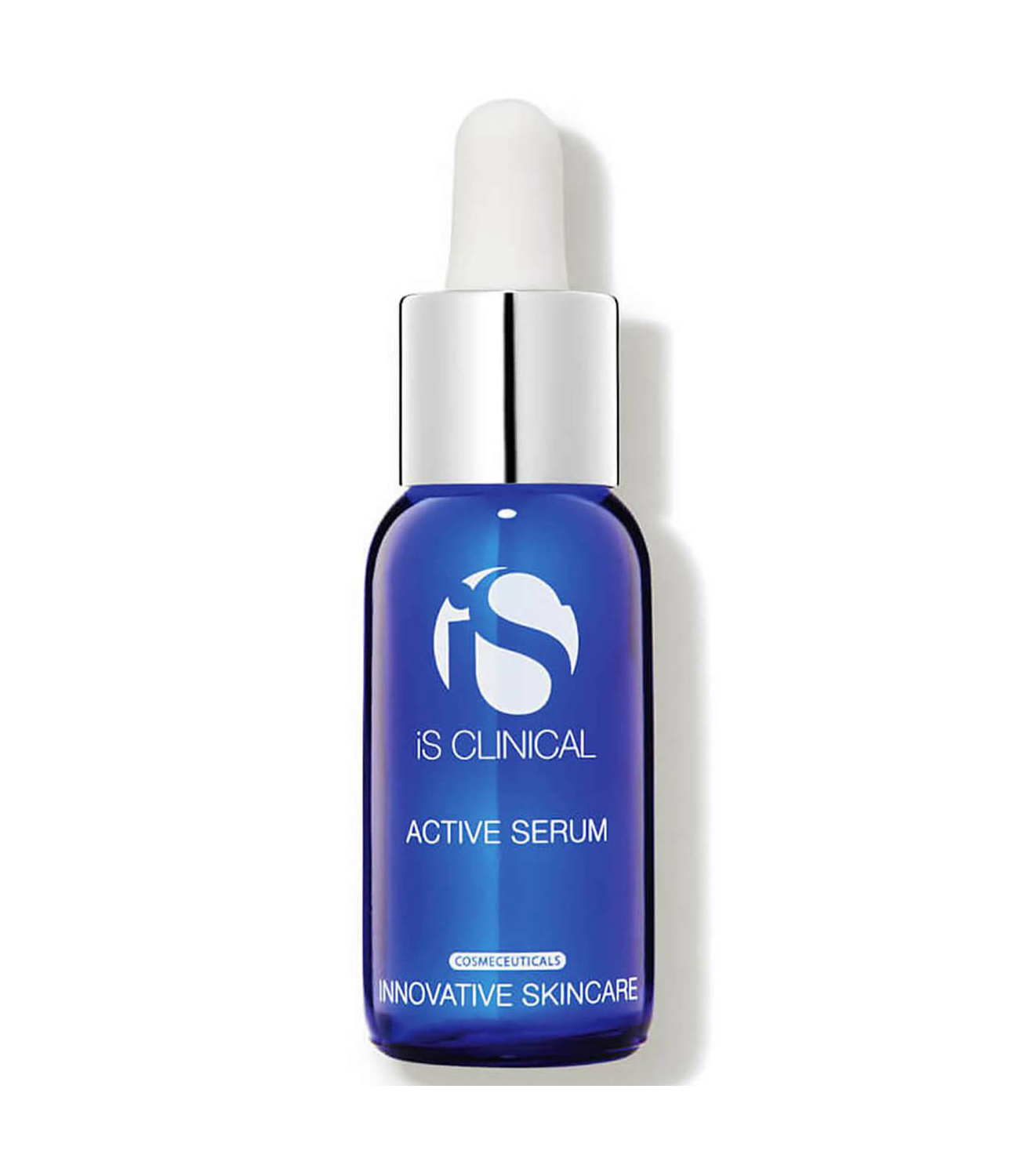
This serum has anti-aging, anti-acne, and brightening benefits. It's a favorite of Who What Wear's beauty director, Erin Jahns. Use it to deal with hyperpigmentation, breakouts, and redness.
Promising review: "This serum has really cleared my skin up! It's not sticky or tacky like some can be. It absorbs pretty quickly, is lightweight, and it gives your complexion a beautiful glow. I have noticed fewer breakouts and less oily skin. I would recommend trying this product!" — Dermstore customer
SkinCeuticals Silymarin CF
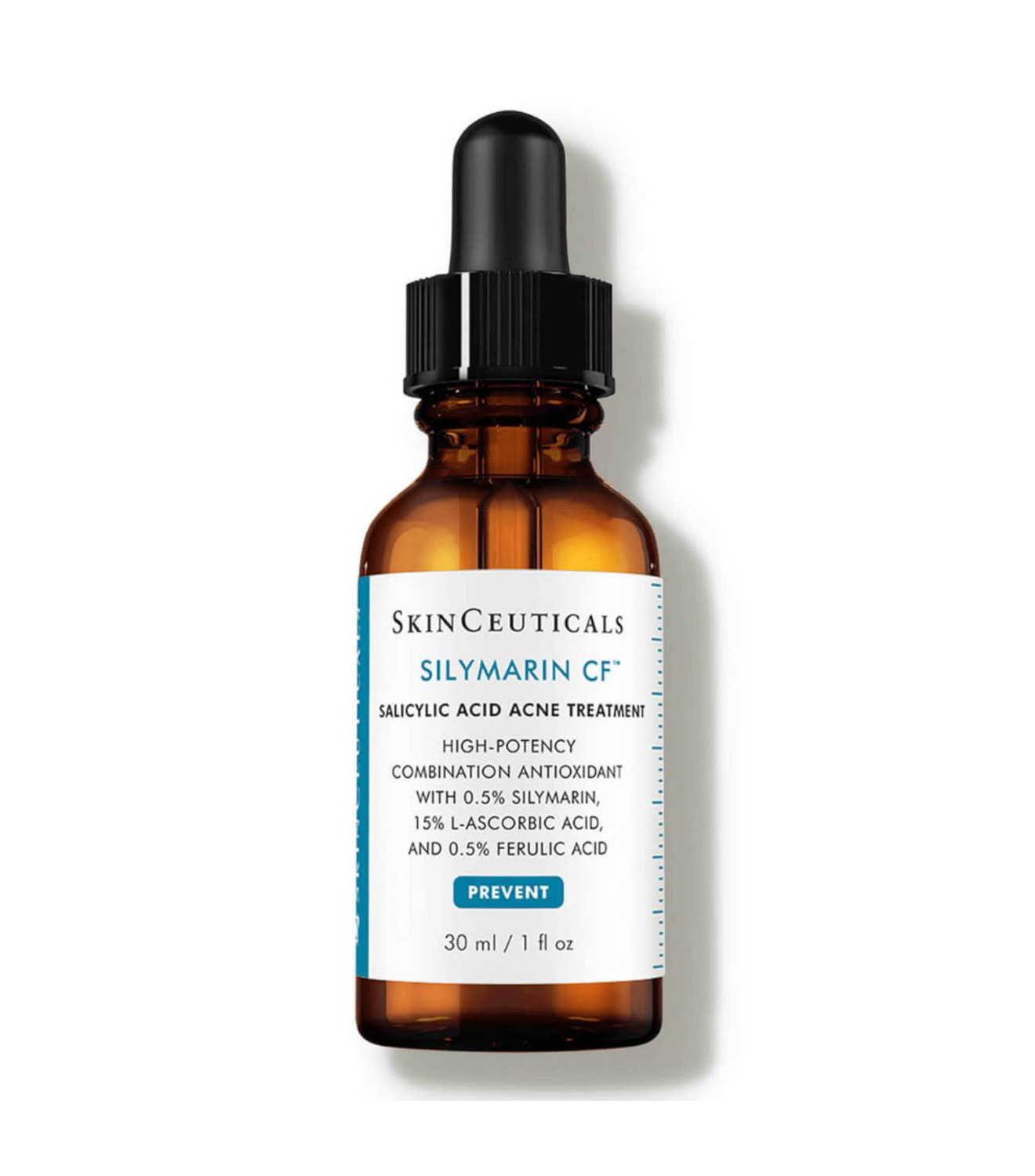
"It combines vitamin C, ferulic acid, and salicylic acid to fight breakouts and silymarin to control oiliness," Hartman says. "This potent antioxidant serum addresses the needs of the oily, acne-prone person while also providing antioxidant protection."
Promising review: "I have been using this for over 20 years, and I'm so glad I started when I did. It's amazing for your skin." — Dermstore customer
SkinBetter Science AlphaRet Clearing Serum
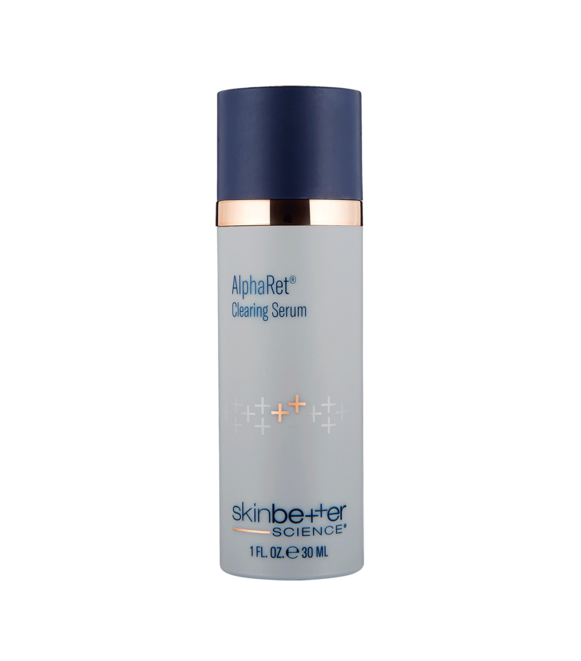
"SkinBetter's acne clearing serum contains a prescription-like retinol, salicylic acid, beta hydroxy acid, alpha hydroxy acid, and lactic acid," Hartman says. "It is a mainstay of acne treatment. It delivers results in a non-irritating formulation that also fights fine lines, wrinkles, and pigmentation."
Promising review: "[I'm] obsessed with this serum! It has helped my acne and skin texture so much. I have very sensitive skin, and this is the only retinol that hasn't irritated my skin." — SkinBetter Science customer
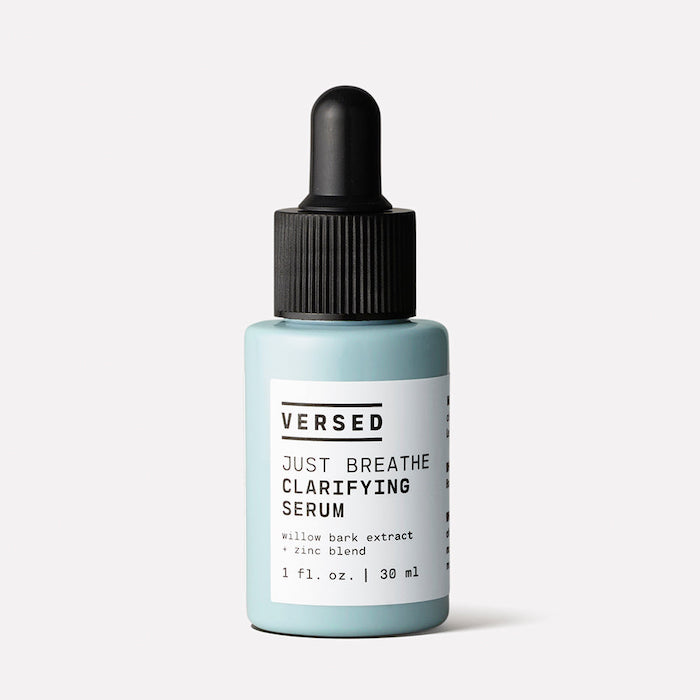
With willow bark extract, a blend of zinc, and niacinamide, this serum removes pore-clogging impurities and manages excess oil for a smoother, clearer, and calmer complexion.
Promising review: "I have been repurchasing this product for over a year now; I have oily acne-prone skin and see and feel a notable difference when I stop using this product. It's easy to layer with other products and overall makes my skin feel healthy." — Versed customer
For Dry Skin:
SkinMedica HA5 Rejuvenating Hydrator
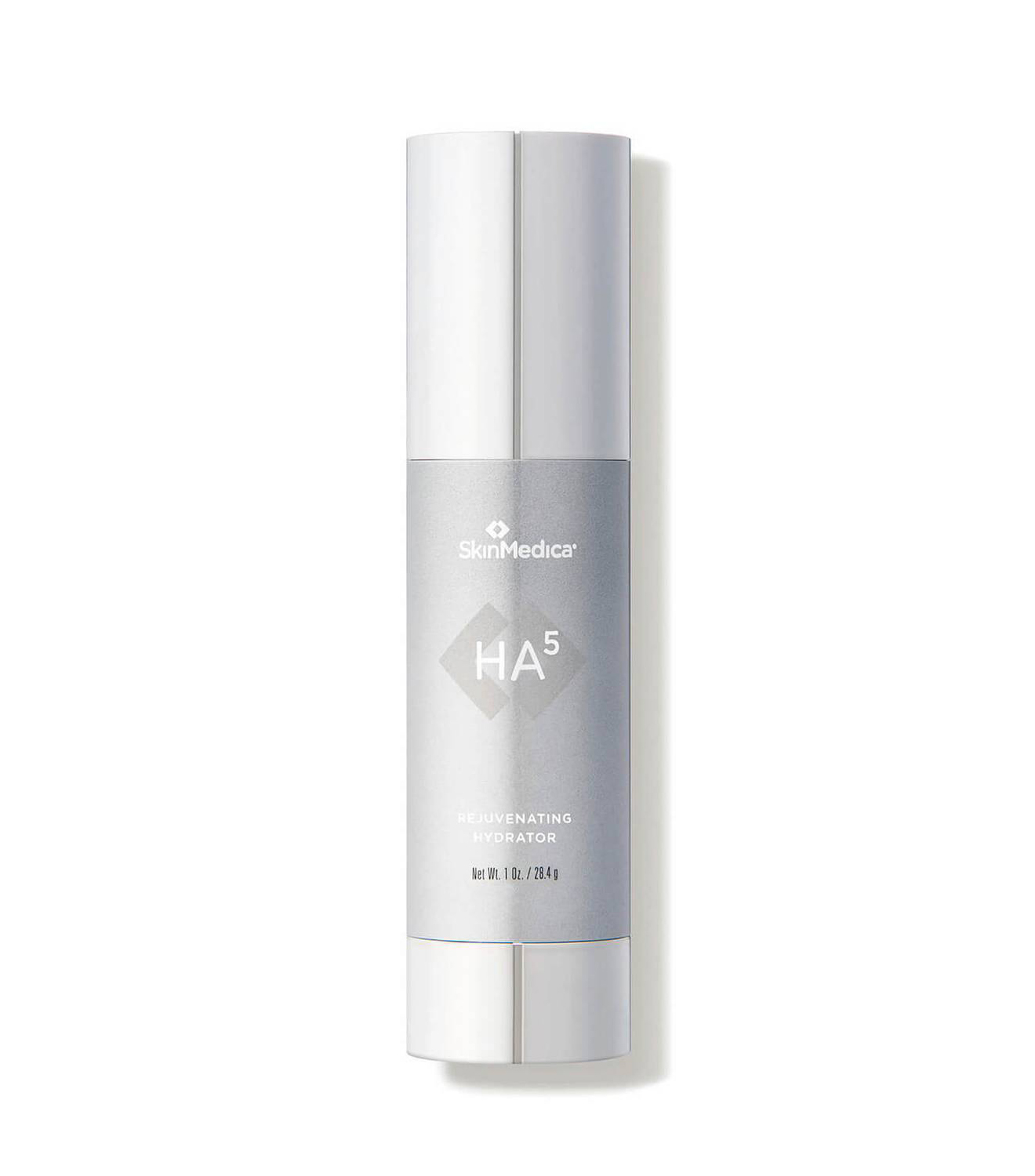
This serum has five—yes, five—types of hydrators. They work to replenish your skin's hyaluronic acid and provide up to eight hours of continuous moisture.
Promising review: "I have very sensitive, combination skin and a history of eczema on my face, and this has been one of my favorite products for years. It's a nice texture, [is] hydrating, and I think a little bit goes a long way. I also use it on my neck. My derm recommended the product, so I'm extra confident it is a good purchase." — Dermstore customer
Isdin Melatonik Recovery Night Serum
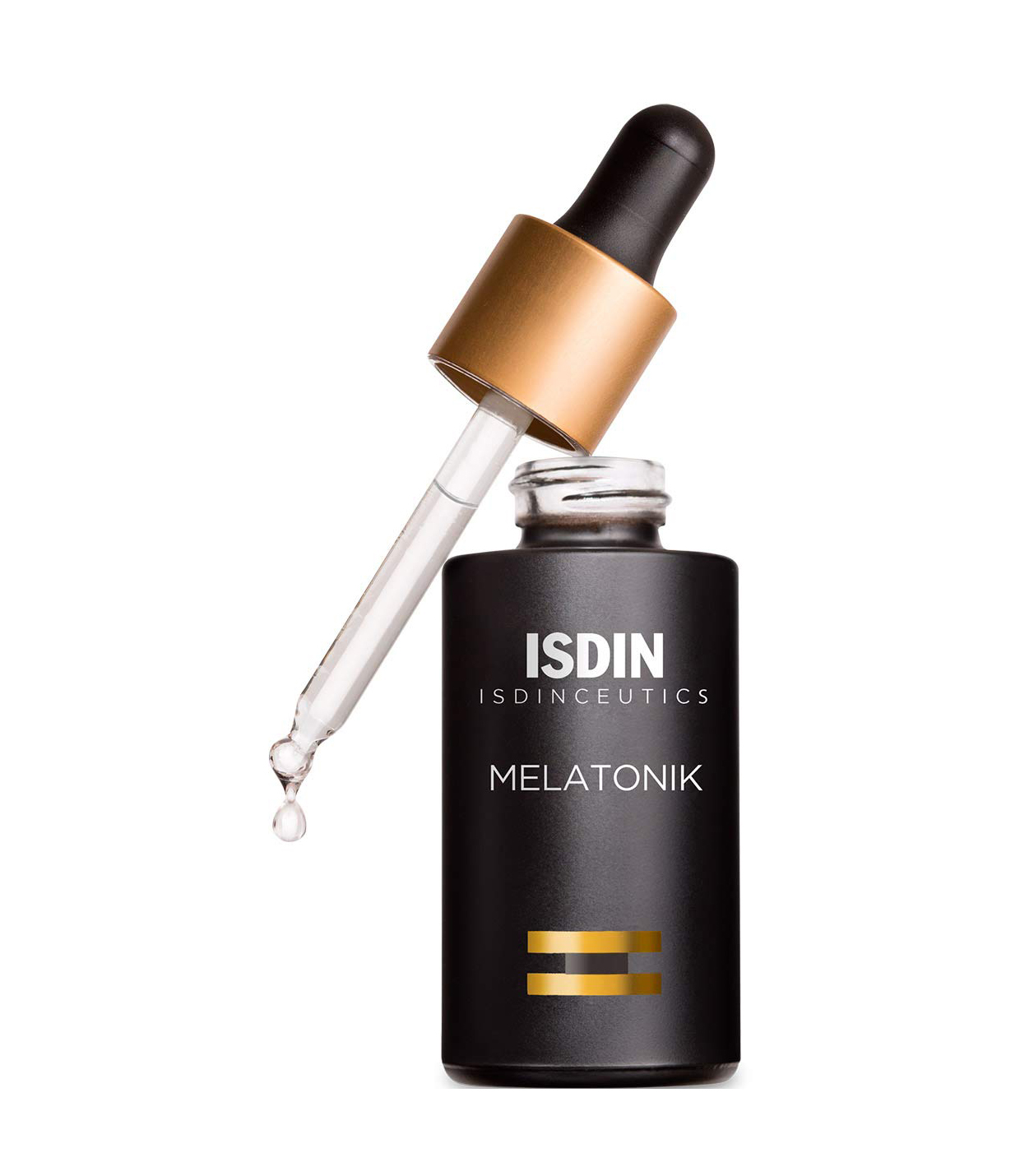
"Isdin's Melatonik is my favorite all-in-one product for the busy professional with dry skin," Hartman explains. "It contains a retinol alternative, bakuchiol, and two antioxidants—one direct, vitamin E, and one indirect, melatonin. It's in a moisturizing oil serum that provides just the right amount of moisture and that dewy look that everyone wants."
Promising review: "This product is magic in a bottle. It is very lightweight and doesn't feel like something is on your face. It penetrates your skin on contact and provides an ideal amount of moisture. One little drop goes a long way. I use it every night, and my face is so radiant in the morning. It is a total transformation." — Amazon customer
Versed Sunday Morning Antioxidant Oil-Serum
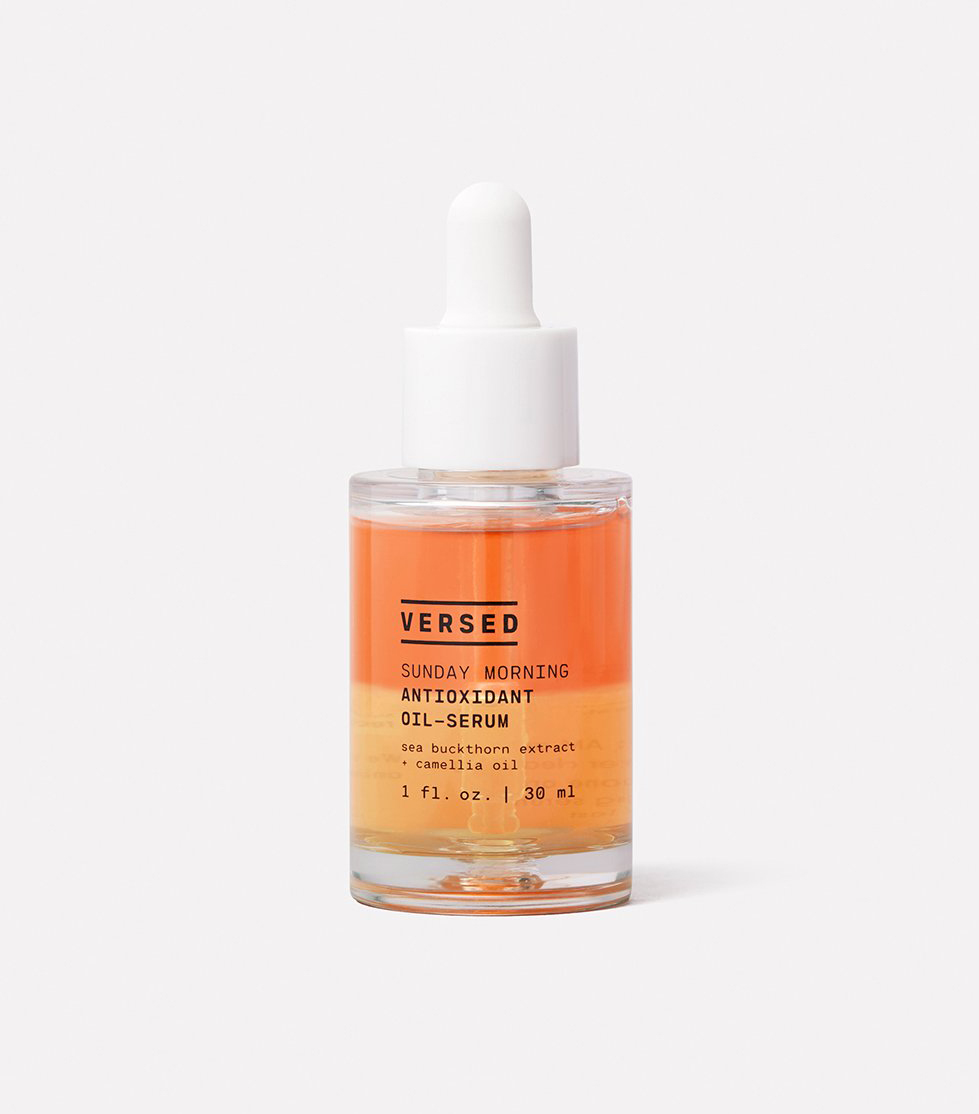
A hybrid oil-serum formula, Versed's product is ultra-hydrating, thanks to vitamin E and sodium hyaluronate. It also reduces redness and strengthens the skin barrier. I slather this on my skin when it's dry, and it always comes through for me.
Promising review: "This oil serum is absolutely perfect! Clean ingredients and have definitely seen a difference in my skin!" — Versed customer
Vichy Mineral 89
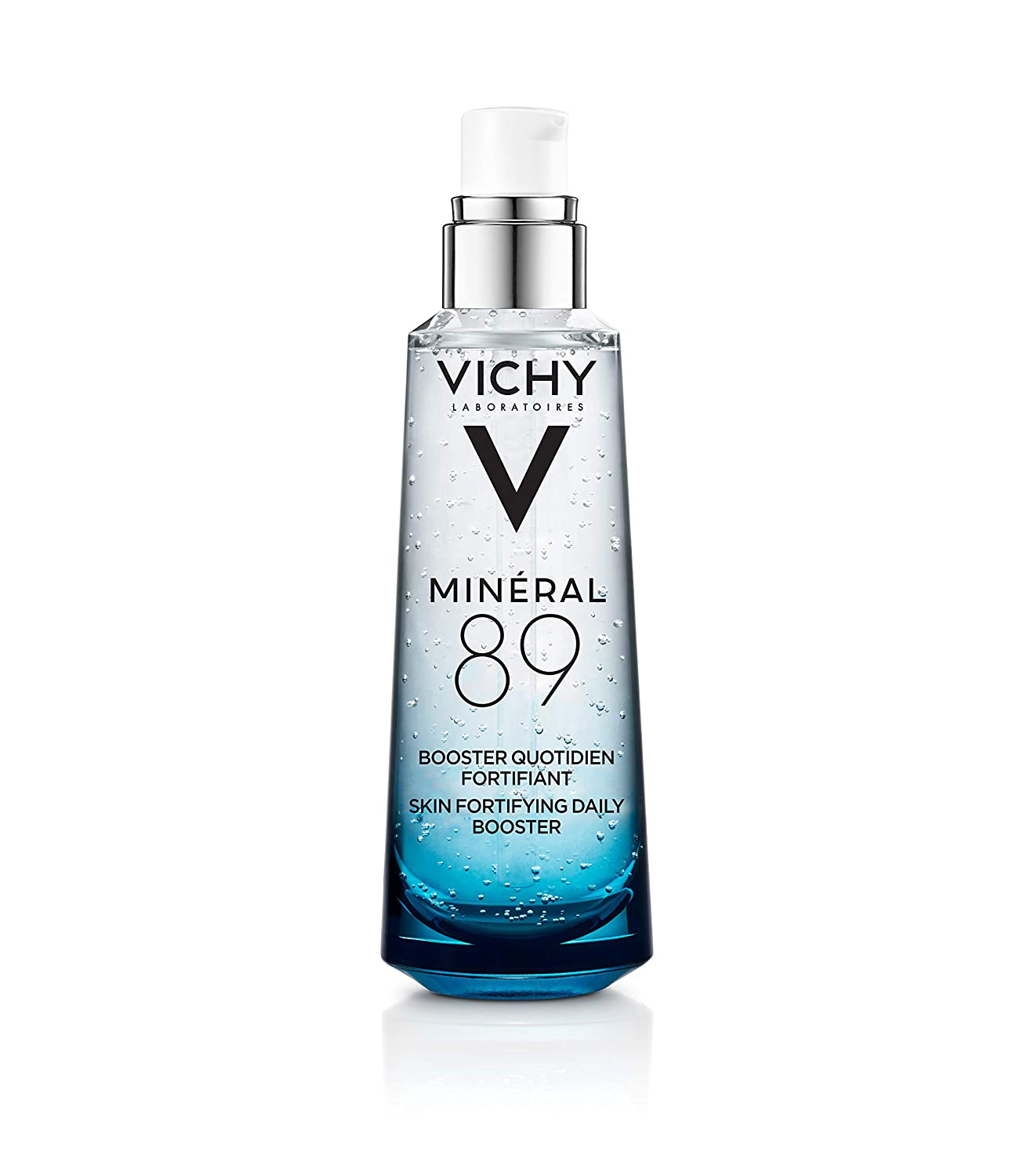
Made with hyaluronic acid and volcanic water, this extremely lightweight serum will plump and hydrate your skin. It provides up to 24 hours of hydration, so you're covered for a long time.
Promising review: "I really like this serum. There is no scent, and it really does firm the skin and is super moisturizing! I have a spot of discoloration on my face [and] it is almost gone now! I will be buying more!" — Amazon customer
L'Oréal Paris Revitalift 1.5% Pure Hyaluronic Acid Face Serum
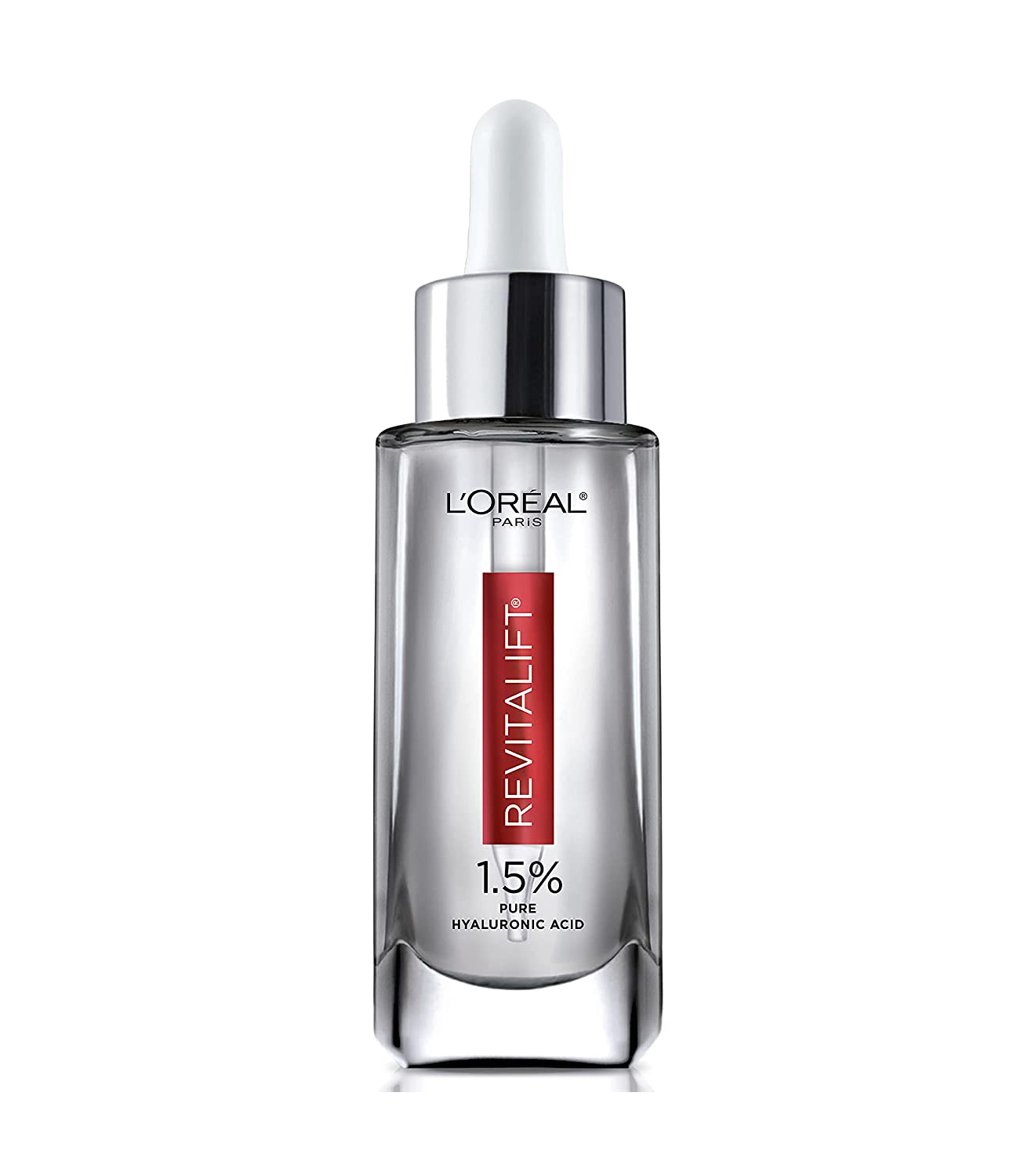
With over 25,000 ratings and 4.5 out of 5 stars on Amazon, this serum comes highly recommended. One reviewer wrote, "The serum is clear, scent-free, and slippery when applied. I use about two to three drops and rub it all over my face and neck. I'm already seeing a noticeable difference in my skin—it feels much more supple, and the surface is smoother and softer to touch."
Promising review: "I love this stuff! The texture of my skin has improved so much since I've begun using this product." — Amazon customer
For Mature Skin:
Shani Darden Retinol Reform
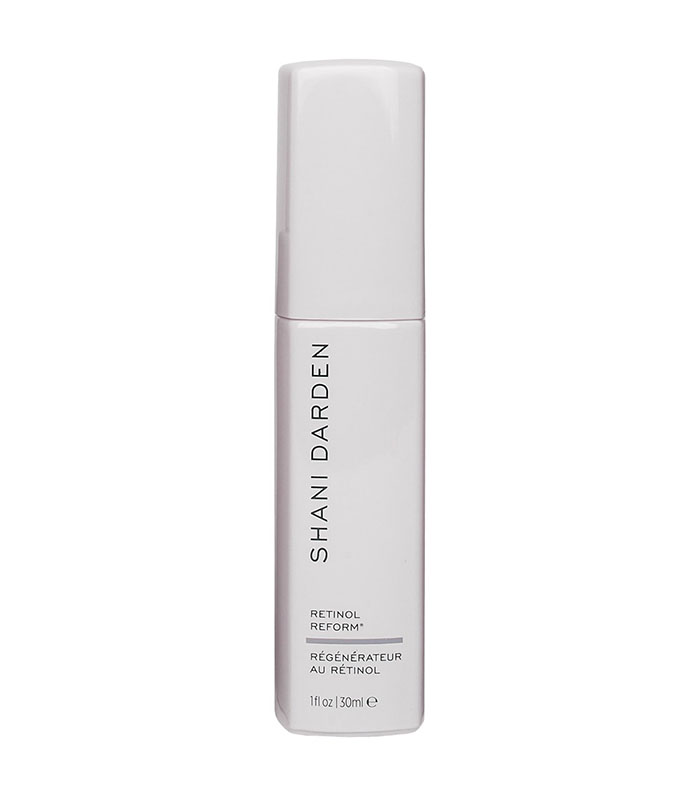
Jahns's 73-year-old mom is a big fan of this product. "I definitely saw a decrease in fine lines after using this product, but I was puzzled as to why it was working," she says. "Usually, if I even just see the word retinol, my skin starts to turn red and flake. But there was no redness or irritation! There was no flaking! Yet I was seeing a decrease in fine lines. This formula is effective yet gentle. To me, it's pure magic, and the hype and buzz are 110% warranted. There are no two ways about it—I love this product."
Promising review: "I absolutely love love love this product. It's now my go-to brand for retinol. My skin is clearer and more radiant" — Sephora customer
Tata Harper Rejuvenating Serum
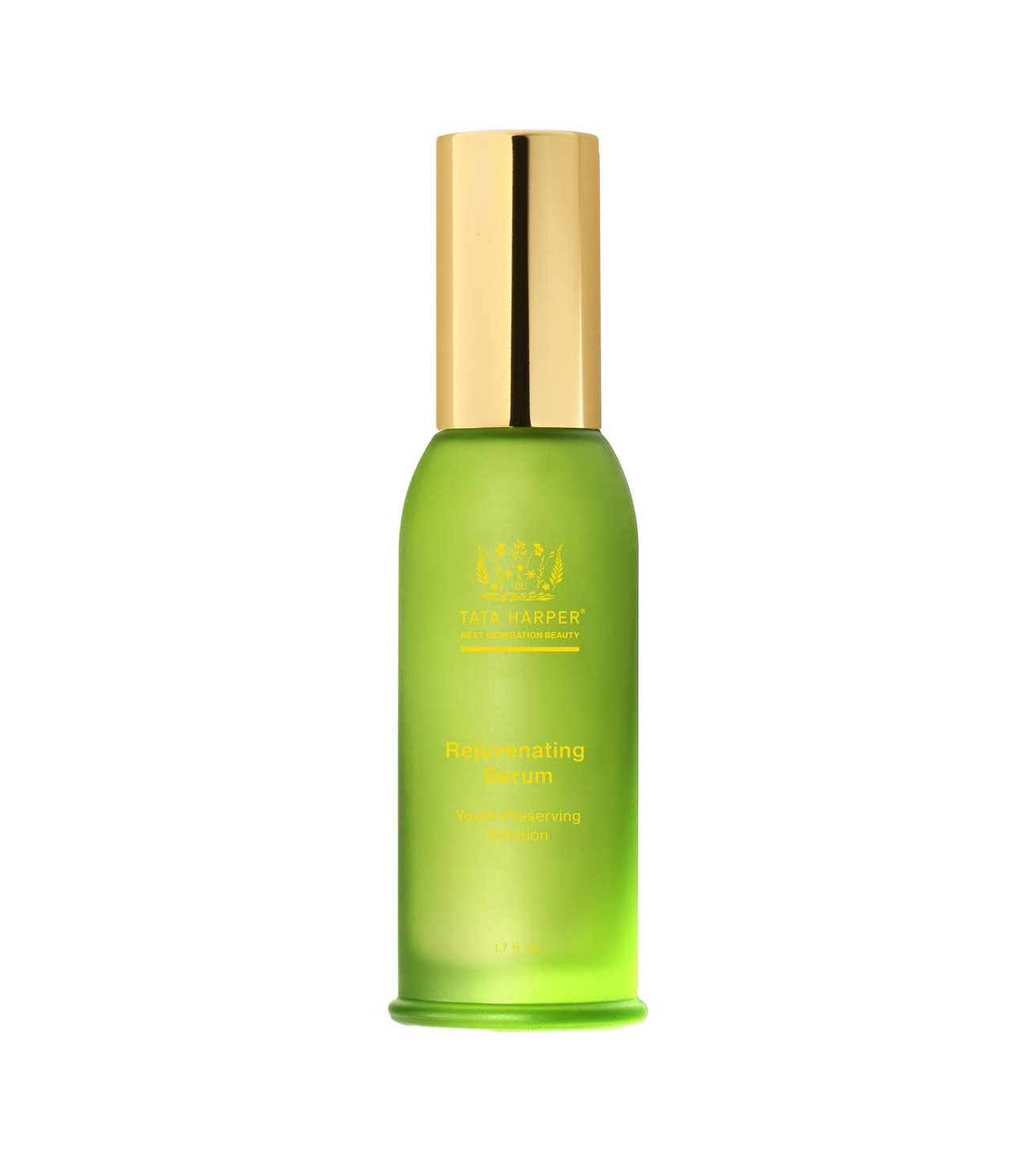
Tata Harper's serum contains Spanish lavender, a natural neuropeptide that maintains moisture and smooths fine lines and wrinkles. Plus, it contains other ingredients to soothe dry skin, like hyaluronic acid and larch tree.
Promising review: "Absolutely obsessed with this serum! I have been using it twice a day religiously on my face and neck, and it is amazing. I have noticed my skin looks brighter and fine wrinkles have diminished." — Nordstrom customer
Neutrogena Rapid Wrinkle Repair Retinol Face Serum
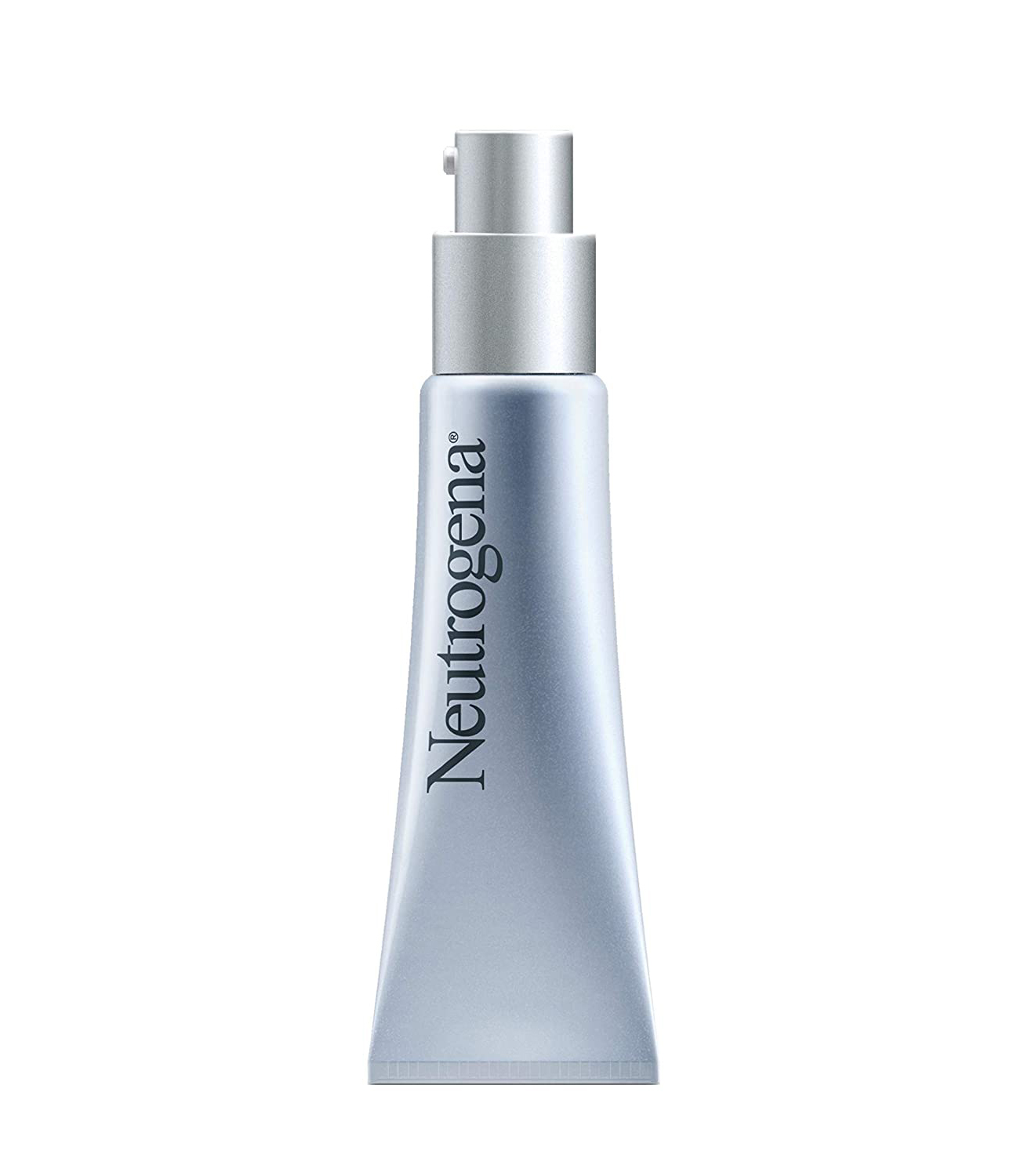
This lightweight retinol serum works to smooth fine lines and texture while brightening and evening the skin tone. One reviewer says, "Within days (yes, days), the deepest crease above one eye is gone, not diminished or better but gone. My forehead lines look like they did in my thirties, and my smile lines are diminishing daily."
Promising review: "I just turned 48. I have crow's feet and lines on my lips and forehead. I noticed within a few days that the crow's feet, the lines on my lip and forehead were gone." — Amazon customer
For Sensitive Skin:
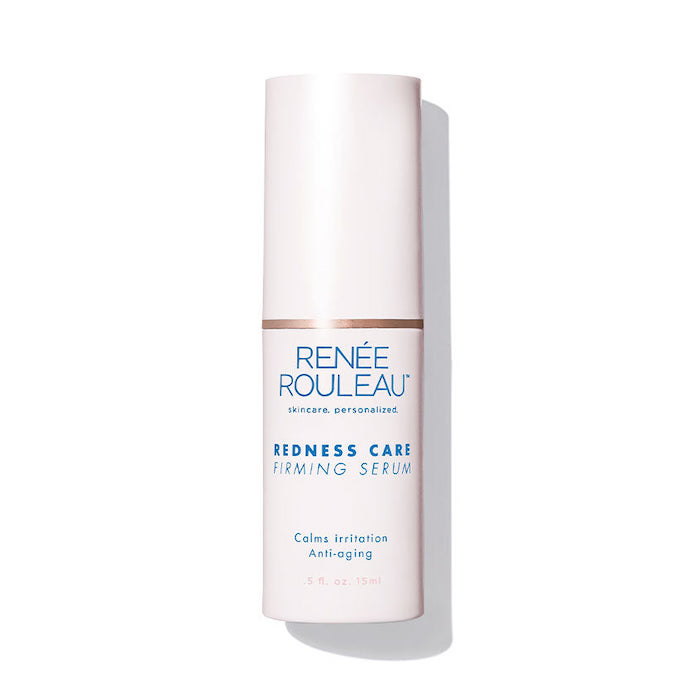
Ingredients like water lily, sea whip, marine algae, and chamomile make this serum soothing and calming for even the most sensitive, redness-prone skin. Plus, it protects collagen and elastin with peptides, helping to firm the skin over time.
Promising review: "It really calms my rosacea, and I haven't had one flare-up since I started using it." — Renée Rouleau customer
Aveeno Calm + Restore Triple Oat Hydrating Face Serum
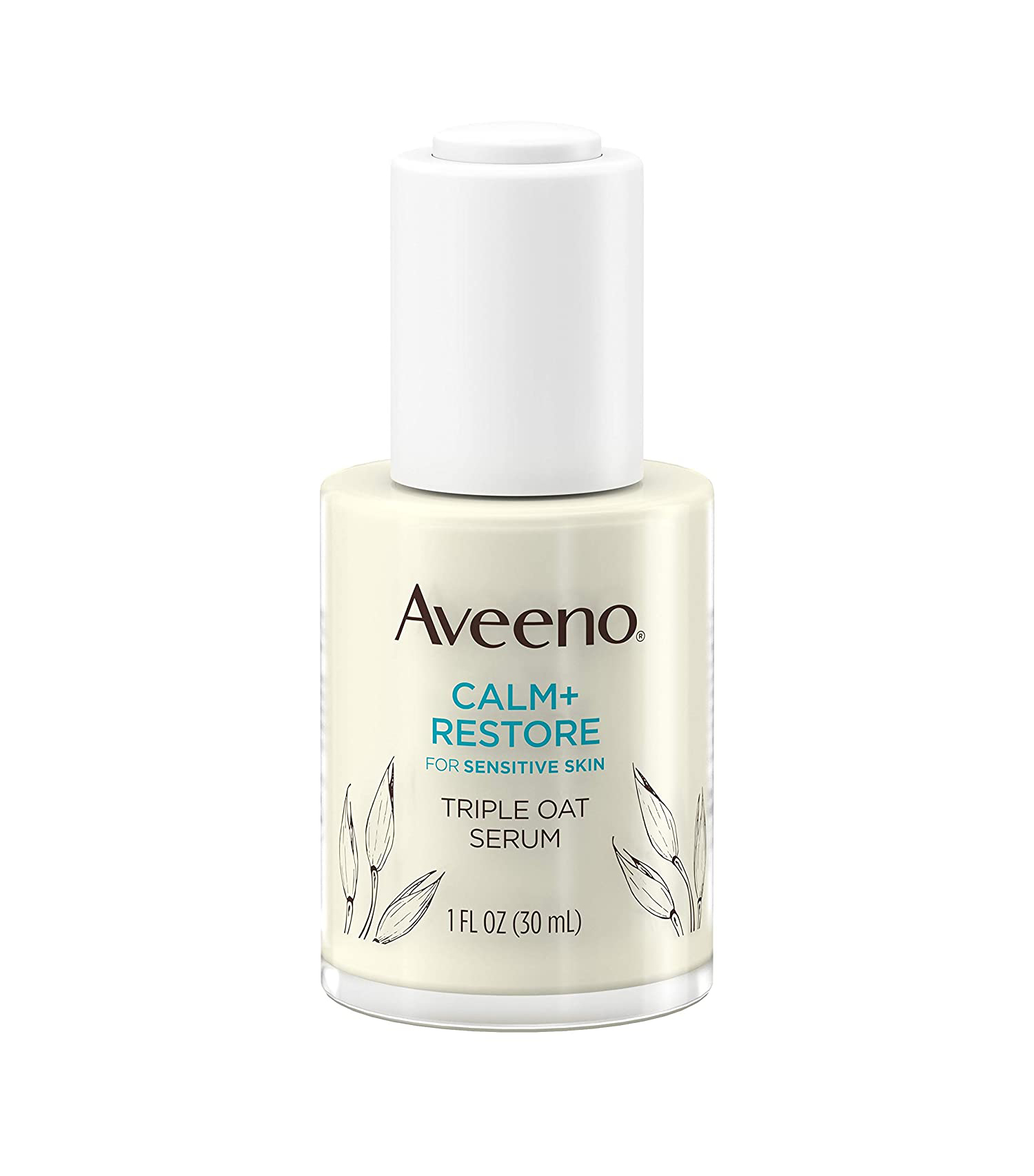
Aveeno's calming serum was formulated especially for sensitive skin. It has a triple oat complex (a combo of oat flour, extract, and oil) to soothe irritation and dryness.
Promising review: "I have moderate eczema, so finding good skin care is always a gamble. I actually heard of this stuff from a dermatologist on social media & decided to try it. I love the whole line! It's super effective but also very gentle on sensitive skin. I use this serum with the gel moisturizer, and I have less flare-ups on my face, and my skin is so soft now." — Amazon customer
Dr. Jart+ Cicapair Tiger Grass Serum
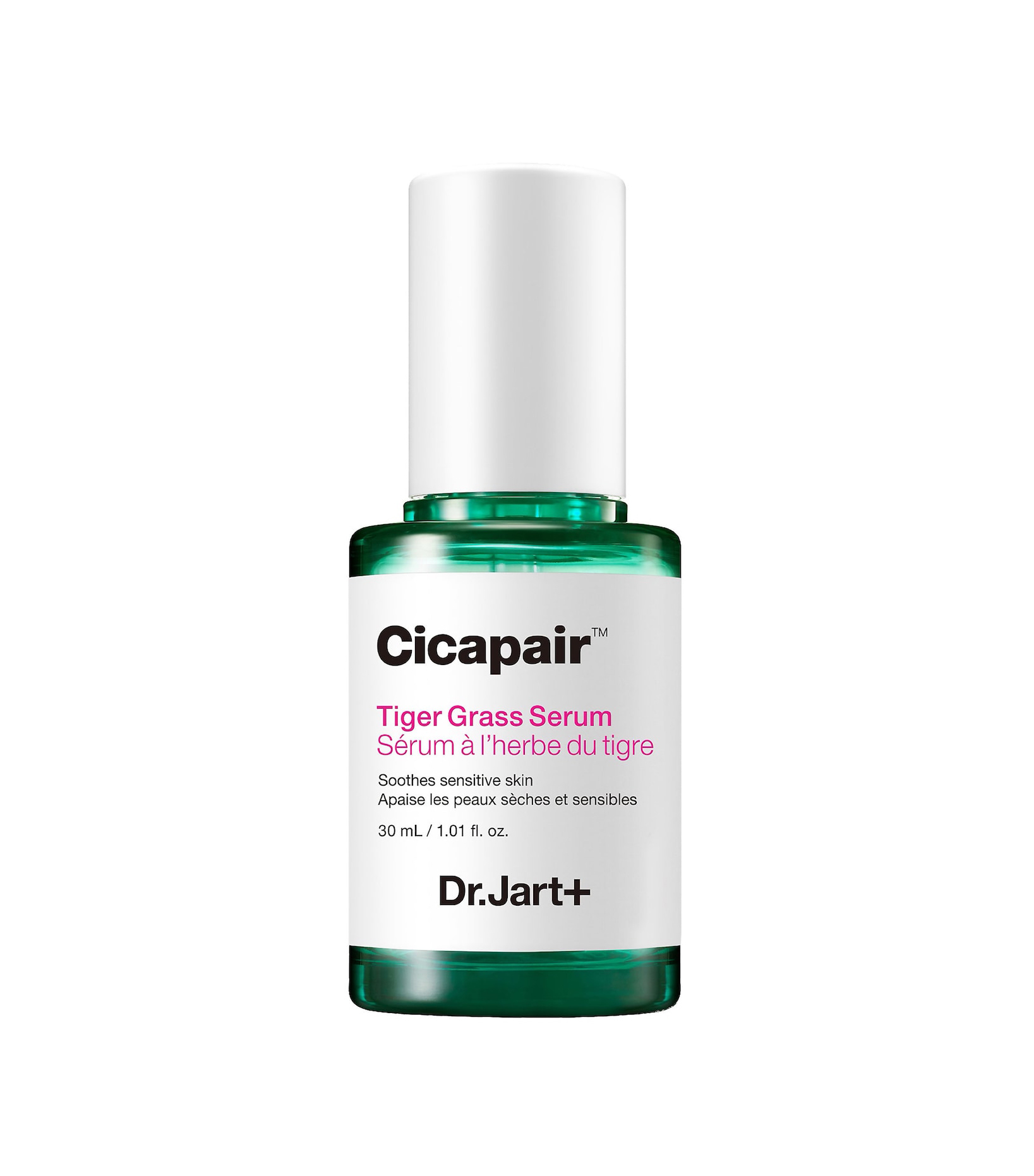
You can say goodbye to redness with this serum. It contains Centella Rx to soothe and protect the skin, plus other ingredients to strengthen the skin's defenses and repair any damage.
Promising review: "I absolutely love this serum! It is gentle enough for sensitized skin, but I definitely see amazing results from a night's sleep using this. Highly recommend it for any unevenness or redness." — Sephora customer
This article was written at an earlier date and has been republished.
Sarah is lifestyle writer and editor with over 10 years of experience covering health and wellness, interior design, food, beauty, and tech. Born and raised in Los Angeles, she attended New York University and lived in New York for 12 years before returning to L.A. in 2019. In addition to her work at Who What Wear, she held editor roles at Apartment Therapy, Real Simple, House Beautiful, Elle Decor, and The Bump (sister site of The Knot). She has a passion for health and wellness, but she especially loves writing about mental health. Her self-care routine consists of five things: a good workout, “me” time on the regular, an intriguing book/podcast/playlist to unwind after a long day, naps, and decorating her home.